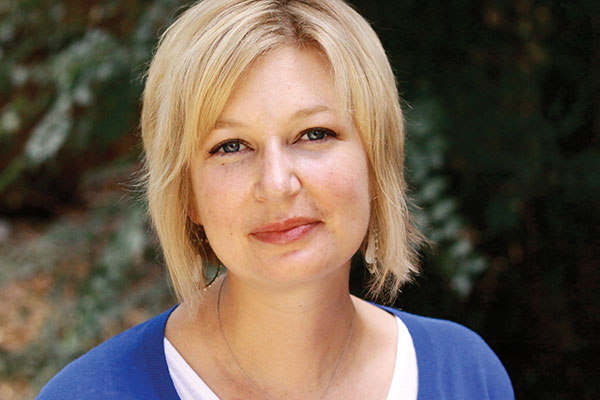Here’s What I Know about Coping with Cancer
Real Advice from a Leukemia Survivor Turned Cancer Therapist
by Melanie Stachelski
When I talk to people who are coping with the turmoil of a cancer diagnosis, I have so much I want to share with them about what I’ve learned from my own cancer journey and from the training I undertook to become a cancer therapist. No matter who I’m talking to, my advice always boils down to these five main points.
1. Find a medical team you have complete confidence in.
Seek out the people who are experts in your disease, and who believe in you and your success. Then, follow their directives 100 percent. If you haven’t made the right connection yet, keep looking. This will be the foundation of your healing. And the rest is up to you! Who do you have on your team?
2. Take care of your body, mind, and spirit.
Make a commitment to do something every day to nurture yourself.
- Move your body. Take a stroll down the hallways of the hospital or around your neighborhood block. Look for an oncology certified massage therapist in your hospital or in your community, or treat yourself to a healing touch or reiki session. Be gentle, keep moving, and listen to your body. What does your body need to heal?
- Calm your mind. Adopt a mantra or affirmation about your health. When you say it, it should make you sit up taller, open your heart wider, and put a smile on your face. Here’s an example: “My body is strong, healthy and vibrant.” What is the vision you have for your health?
- Listen to your spirit. Search within yourself to find that spark of intuition that tells you, “You can do this!” I call this your Inner Healer. Pay attention to that intuition, to the people who show up in your life, the books that are recommended to you, and the dreams that you have. These are all messages from your Inner Healer that can be used to promote your healing and well-being. What is your Inner Healer saying to you?
When you’re feeling down, it can be surprisingly hard to figure out what you need to do to get back on track.
3. Make a lift-me-up list.
When you’re feeling down, it can be surprisingly hard to figure out what you need to do to get back on track. Make a list of all the small, simple things that fill you up, lift your spirits, and keep you motivated toward health and healing. Post your list somewhere you’ll see it every day during your treatment and recovery, and commit to doing at least one of these mood-lifting activities daily. Your list could include things like listening to your favorite music, cuddling with your pet, enjoying the outdoors, connecting with your best friend, watching a funny or uplifting movie, and savoring your favorite food or drink. What are the things in your life that fill you up?
4. Live in the moment.
After a cancer diagnosis, it’s natural to spend some time contemplating the past (How did this happen? What did I do wrong?), and worrying about what might happen in the future (What if the treatment doesn’t work? What if my cancer comes back?). But you can’t change the past, and no amount of worrying will help you predict the future. It will only take away your peace of mind in the here and now. When you find yourself becoming depressed about the past or anxious about the future, gently bring your attention back to the present. More often than not, you will find peace. How do you feel right now in this moment?
5. Look for the message of love.
I believe there is a message for each of us in the journey through cancer, and that message is always love. When you’re ready, begin to examine what changes you need to make in your life in order to become the most authentic, vital, and healthy you. What do you want your life to look like after cancer?
A therapist at Colorado Cancer Counseling in Arvada, CO, Melanie Stachelski, specializes in helping people through every stage of a cancer diagnosis. She is also a blood cancer survivor and a grateful stem cell transplant recipient. You can learn more about Colorado Cancer Counseling, and about Melanie’s cancer journey, at cocancercounseling.com.
This article was published in Coping® with Cancer magazine, May/June 2018.
Everyone has a unique story to share. Do you want to share your survivor story? We consider a cancer survivor to be anyone living with a history of cancer – from diagnosis through the remainder of life. Here are our submission guidelines.


